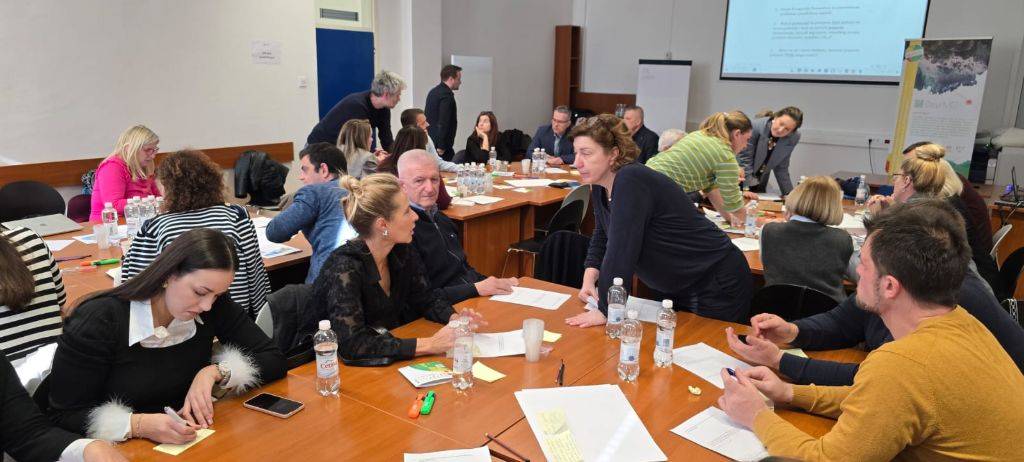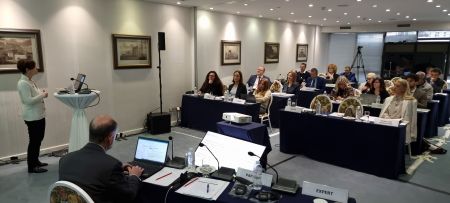On February 7, 2025, the Faculty of Civil Engineering, Architecture, and Geodesy (FGAG) in Split hosted a pivotal workshop as part of the DesirMED project. The focus was on applying nature-based solutions (NbS) to adapt the coastal region of Split-Dalmatia County to climate change, with a particular emphasis on Kaštela Bay and the surrounding cities of Split, Solin, Kaštela, and Trogir.
The event brought together project partners, members of the University of Split, officials from the cities of Kaštela and Trogir, civil society organizations, and representatives from Croatian Forests, Croatian Waters, the Directorate of Civil Protection, and the Croatian Meteorological and Hydrological Service (DHMZ). The goal was to develop a shared vision for the future of Kaštela Bay.
Project partners include Split-Dalmatia County, FGAG, the environmental organization Sunce, and PAP/RAC. Ivan Sekovski, a programme officer from PAP/RAC, emphasized the urgency of accelerating the implementation of transformative, nature-based solutions to enhance long-term climate resilience.
Several strategic documents, such as the Coastal Management Plan of Split-Dalmatia County, the Coastal Management Plan for the City of Kaštela, and the Climate Adaptation Plan for the Jadro River basin, form the foundation for implementing NbS in the narrow coastal strip of Kaštela Bay.
The workshop featured presentations on the latest findings regarding climate change impacts on Kaštela Bay, highlighting key environmental threats such as floods, droughts, wildfires, and coastal erosion. Participants explored pathways toward a sustainable and climate-resilient future for the Bay. Divided into four groups, they identified key challenges, including limited financial resources, unresolved property-legal issues, underdeveloped stormwater drainage systems in all four cities around the bay, and the lack of municipal management over coastal and maritime areas.
The workshop concluded with participants presenting their vision for Kaštela Bay in 2040: connected, safe, sustainable, and green. Proposed solutions included the installation of floating pontoons to prevent flooding, the construction of a "green wall" on the slopes of Kozjak mountain, the promotion of permeable surfaces to reduce excessive concrete use, and the expansion of protected natural areas. A major concern was the region’s transport connectivity. Another key proposal was the formation of a larger metropolitan unit encompassing Kaštela Bay municipalities to facilitate access to major funding opportunities and boost implementation efforts.


